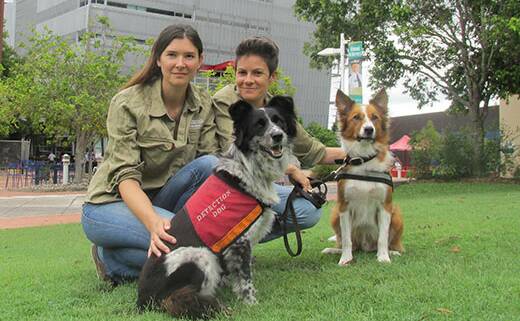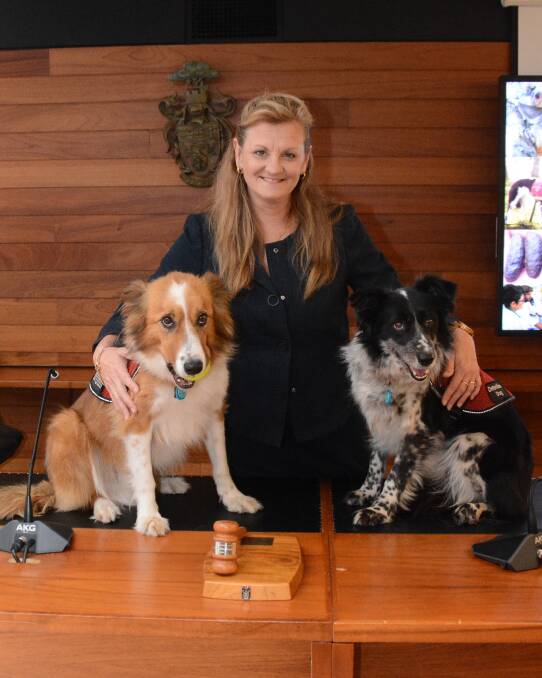SPECIALLY trained koala detection dogs, Maya and Baxter, and their expert handlers are on the prowl in the Redlands looking for the fast disappearing marsupials.
Create a free account to read this article
$0/
(min cost $0)
or signup to continue reading

The dogs are part of a Redland City Council city-wide koala population assessment and will be searching for signs of koalas over coming weeks at Cleveland, Ormiston, Thorneside and Wellington Point.
Redland mayor Karen Williams said the district was a recognised population stronghold for koalas in Queensland and housed one of Australia’s most significant coastal koala habitats.
“This unique tracking program is part of council’s five-year koala conservation strategy which will focus on the five key threats to koalas – habitat loss and fragmentation, road mortality, dog attacks, disease and changes to climate.
“This project is a critical first step in understanding koala density numbers, health, population size and survival rates, population genetics, and identifying important kKoala habitat (both existing and potential).
“We’ll be targeting certain suburbs at certain times during upcoming weeks but we are also happy to hear from Redlanders who see koalas in their own backyard or have a koala tree on their property.”

Cr Williams said council had invested heavily in scientific programs to help protect koalas, with the tracking program following the ground breaking chlamydia trial which was partnered with the University of Sunshine Coast.
Ecologists and geneticists Romane Cristescu and Celine Frere of Detection Dogs for Conservation tand handlers will lead the research.
The pair has more than 25 years’ experience in koala ecology and has done more than 1400 scat surveys in south-east Queensland.
Dr Frere said Maya and Baxter have conducted more than 995 and 450 koala scat surveys respectively.
“Koala poop can tell us lots of important things about our koalas, and the DNA information we extract will help Redland City Council better manage and protect Redland’s koalas into the future,” Dr Frere said.
Koala numbers in the Koala Coast have crashed by about 80 per cent from 1997 to 2013, putting the species in major trouble.
To register for a visit by the koala detection dogs contact the Koala Population Assessment Register at IndigiScapes on 3824-8611 or email indigiscapes@redland.qld.gov.au.
If you want to help in other ways, record sightings on The Atlas of Living Australia.
For more information visit redland.qld.gov.au.

